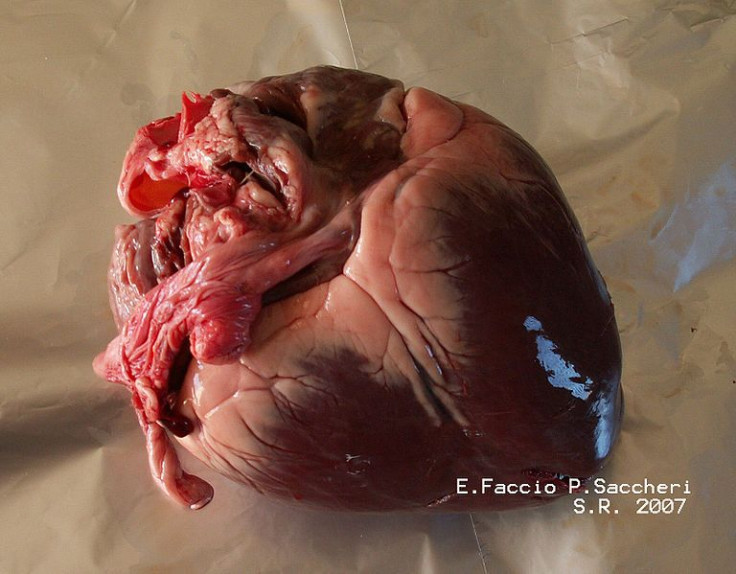New Gene Therapy Approach May Regenerate Heart Muscle After A Heart Attack

Heart disease, a leading cause of death in the U.S., costs billions, literally, in terms of services, medications, and lost productivity. Now, researchers have developed a new technique that “personalizes” treatment for those suffering from heart disease — a gene therapy approach that would be able to convert cells into heart muscle cells.
"This gene therapy approach resulted in new cardiac muscle cells that beat in synchrony with neighboring muscle cells and ultimately improved the pumping function of the heart," Dr. Deepak Srivastava of the Gladstone Institutes stated in a press release.
New Therapy
In previous experiments, Srivastava and his colleagues had found a way to reprogram scar-forming cells (called fibroblasts) within the hearts of mice and turn them into new, beating heart muscle. They had accomplished such a cell conversion by injecting a combination of three genes into the animals' fibroblast cells. Remarkably, this process had regenerated a heart from within each mouse. Could a similar process be applied to humans? Srivastava and his colleagues began their investigation.
"Over 50 percent of the cells in the human heart are fibroblasts, providing a vast pool of cells that could be harnessed to create new muscle," Srivastava stated in a press release.
Using a slightly different combination of genes than employed in their research on mice, Srivastava and his colleagues cultivated fibroblasts from human fetal heart cells, embryonic stem cells, and newborn skin, and transformed them into heart muscle cells. The team envisions introducing this new approach some day as a gene therapy for humans, whereby fibroblasts will be converted into new muscle and so improve the function of the heart. Before that can happen, though, additional research is needed to improve the process of reprogramming adult human cells in this way.
“These findings demonstrate that human fibroblasts can be directly reprogrammed toward the cardiac lineage, and lay the foundation for future refinements in vitro and in vivo,” the authors wrote in their paper.
Although this represents an important step toward the use of this technology for regenerative medicine, the scientists would most likely replace the genes with drug-like molecules to produce a similar effect. This would also make the therapy both safer and easier to deliver.
Symptoms
Heart disease, responsible for about one in four deaths in the U.S., encompasses coronary artery disease, arrhythmias, heart infections, and congenital heart defects. Among potential risk factors, high blood pressure, high LDL cholesterol, and smoking are the most common, and nearly half of Americans have at least one. Although warning signs and symptoms of heart attacks are clear, many people do not know what they are. If you or someone you know experiences any of the following, know that this is your warning and get help:
- Chest pain or discomfort.
- Upper body pain or discomfort in the arms, back, neck, jaw, or upper stomach.
- Shortness of breath.
- Nausea, lightheadedness, or cold sweats.
Source: Fu JD, Stone NR, Liu L, et al. Direct Reprogramming of Human Fibroblasts toward a Cardiomyocyte-like State. Stem Cell Reports. 2013.
Published by Medicaldaily.com



























